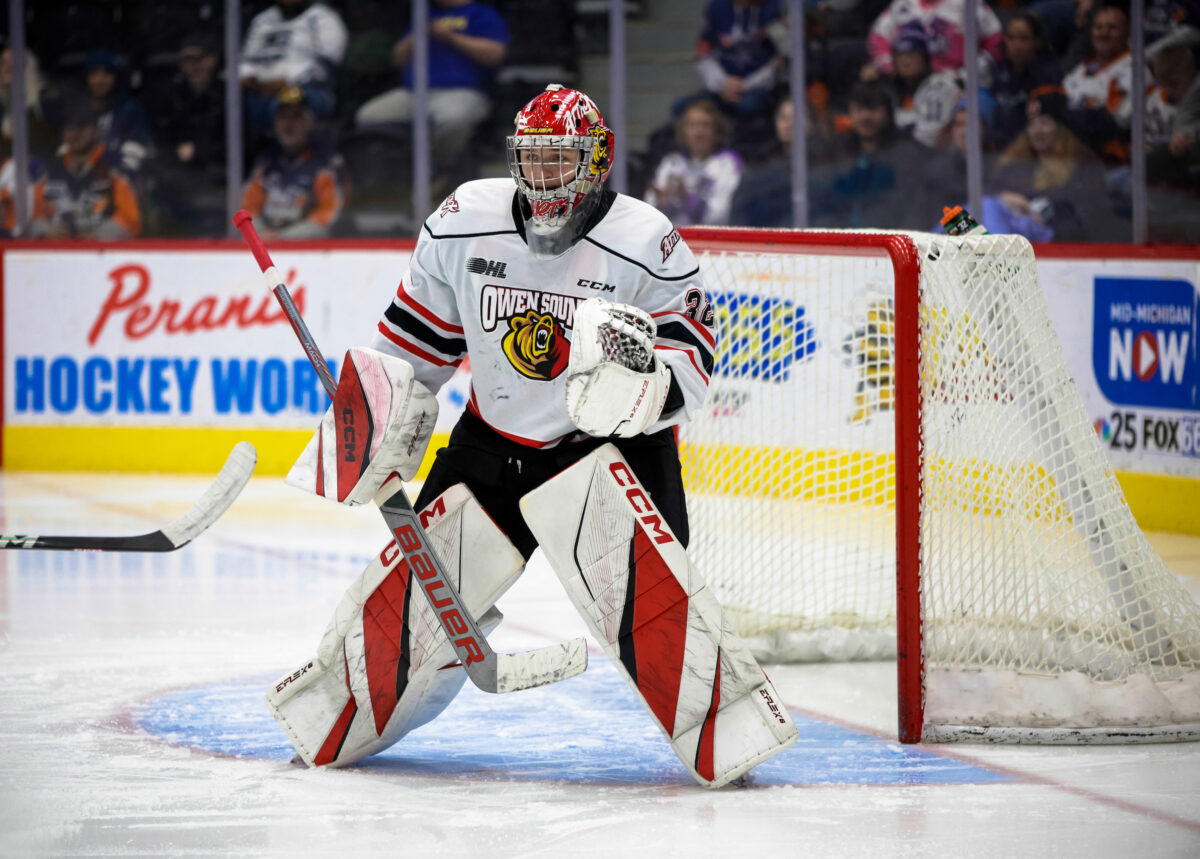In the third contest of the 2025 International Ice Hockey Federation (IIHF) World Junior Championship (WJC) for both Canada and Germany, it was the former who emerged as victors, 3-0. Though Germany lost, that three-goal defeat was significantly better than they were expected to perform. They should be happy. As for Canada, their victory keeps their first-place hopes in Group A alive. What are some takeaways for both sides?
Canada’s Offence Leaves a Lot to Be Desired… Again
Three games, three times making the same point. It’s getting a little redundant. Canada’s offence hasn’t looked as dangerous as expected heading into this tournament.
Related: Guide to the 2025 World Junior Championship
Even though they’re oozing with talent, Canada quite simply hasn’t been able to have the offensive touch many would have expected given their roster. They hunted for some of those high-danger looks, but quality shots were still hard to come by against Germany. It was the same old story: they possessed the puck a lot but didn’t do enough with it.
At this point, the hope for Canada is that they can out-possess their opponents and win through good discipline (penalty-wise but also things like turnovers). This isn’t necessarily a bad thing, but it’s an unexpected adjustment for a team loaded with elite talent. They’ll have to play some good, solid hockey to go on a deep run and have a chance at gold. Things can change, of course, but this doesn’t seem like the team that will score six or seven times in a gold-medal matchup.
Germany Held Their Own at 5-on-5
They started the WJC by giving up 10 goals to the United States, yet Germany only gave up three to Canada. More impressive, one of which was a power-play tally and the other was a last-second empty-netter. Though they could hardly muster any offence, Germany didn’t back down to a superior roster to theirs. That’s fighting for your country.
The Germans hardly had any standouts, as they were kind of just surviving the whole night. They did have their fair share of chances, though, which is a good sign for them moving forward. It could be argued that out of Finland, Latvia, and themselves, Germany played Canada the best at 5-on-5.
Canada’s Special Teams Have Stepped Up
Finally, a positive for Canada. Their special teams cost them versus Latvia, sacrificing two power-play goals and only scoring one of their own in a 3-2 shootout loss. When the play is more or less even at 5-on-5, what has to happen? You need to outplay the opposition when there aren’t five skaters apiece. Canada did that, scoring a power-play marker and not allowing anything the other way.
Looking at the penalty kill, Canada had a much better game than they did two nights ago (Latvia). Part of that was excellence between the pipes from Los Angeles Kings prospect Carter George, who had his second shutout of the WJC in his second game. If Germany had a chance, he snuffed it out. To that point, though, the penalty killers did a better job. Scoring chances were harder to come by, at least by the eye test. Still, the netminder helped seal his cage.

On the power play, Canada finally put Oliver Bonk in the bumper. Funny enough, “Bumper Bonk” was tried as the quarterback on the man advantage to start the tournament, but head coach Dave Cameron and his staff made the switch for this contest. It worked, as the Philadelphia Flyers defensive prospect struck from his famous spot to give Canada the lead (and the win). The assists came from the Toronto Maple Leafs’ Easton Cowan, a heads-up play, and the Seattle Kraken’s Berkly Catton.
Canada isn’t converting at the rate you’d like, still sitting at just two power-play markers this tournament, but it’s a start. Just one conversion can make the difference once these games are do-or-die in January—winning the special teams battle, no matter how it’s done, is what matters.
Germany Can Still Avoid Relegation Game
The Germans lost, meaning that they’re one step closer to the relegation game, which will take place on Jan. 2, 2025, between the last-place members of Group A and B. Today, that’s where Germany finds themselves—dead last.
To guarantee they stay in the top division, Germany needs to beat Latvia in regulation and also have the Latvians lose to Finland. Yes, Latvia had a historical upset versus the Canadians, but the last-place squad from Group A should still come down to the result of Germany’s next (and final) game of the preliminary round.
Both clubs played inspiring contests against Canada, so they have something to hang their hat on. Playing, at least on paper, the top junior team in the world so close is very encouraging for international hockey. The talent gap was still noticeable, but you couldn’t tell from the scoreboard. Germany, along with Latvia, was seen as the bottom team in a strong Group A by everyone. Yet, they made a terrific team sweat it out.
In the event that the Germans finish last, it’ll be either Kazakhstan (minus-19 goal differential) or Switzerland (minus-7 goal differential) they’ll be taking on. That may be getting ahead a bit, but it’s important to scout your foes.
What’s Next for Germany and Canada?
Next up, Germany will be back in action against Latvia for a must-win affair. That’ll take place on Dec. 30 at 3:30 p.m. EST at the Canadian Tire Centre. Meanwhile, Canada will get a break before they take on the United States to decide the first-place club in Group A. That’s on Dec. 31 at 8 p.m. EST, also at the Canadian Tire Centre.
